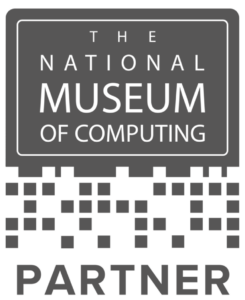When was the last time you used a typewriter? That’s a funny question isn’t it? Well would you believe that this simple question has real relevance when it comes to IT service management (ITSM) professionals today and the ongoing changes brought about by digital disruption and digital transformation. Hold that thought for a moment.
Unless you’ve been living under a rock you’ll have noticed some fundamental shifts in the world of IT in recent years. This shift has proliferated through to both the IT function and the business itself. What we’re now seeing and experiencing first hand is a seismic shift in areas such as:
- IT technologies
- Management of IT
- Business models
- Attitudes, behaviours, and culture
The traditional IT landscape and IT model that has served us well over the last twenty-or-so years, has changed significantly. New digital technologies are taking over. These latest technologies include:
- Cloud
- Big Data
- Internet of Things
- Block Chain
- Artificial intelligence (AI)
This technological change is significant. If ITSM professionals want to remain relevant in today’s new IT landscape, they need to fully understand what digital transformation is about. They also need to become leaders and trusted advisors in their organisation on all matters relating to cloud. This is because cloud is the most common of these digital technologies being adopted today.
One difficulty facing ITSM professionals is where to start – what needs to be addressed to make a difference. A number of good areas to start with are listed below, presented in no particular order.
Broker Role
IT professionals should be the experts within the organisation for digital and cloud services. This requires both a good technical and business knowledge of both domains. In essence, the IT function should upskill and position itself as the ‘broker’ of all digital and cloud services on behalf of the entire organisation. This will increase the value of the IT function to the business and moves both the function and the IT professional up the value chain within an organisation.
Manage Digital Spend Differently
IT budgets have been a form of cost control for many years. However, managing digital and cloud services on a traditional IT budget and expecting them to be agile will lead to failure. Move from inflexible budgets to flexible cost and charge models. Establish proper billing mechanisms that charge departments and users based on usage and not pre-defined budgets. Think about how you are charged for your personal use of electricity at home. Consume more, pay more. Consume less, pay less. This is a very transparent model.
Agility and Controls
The IT function needs to become more agile, in the places that require agility. The IT function must also protect services, applications, and IT infrastructure that are not suitable for agile development. This means:
- re-defining the change process, end-to-end, incorporating agility where needed
- re-defining the purpose of the change advisory board (CAB) or even removing the CAB from all operational activities
- changing existing attitudes, behaviours, and expectations throughout the organisation relating to how change occurs to agile environments
- updating or redefining your change control process taking a value-stream perspective
Manage Disintermediation
Disintermediation, in the context of this article, is when people sign-up to, procure, and use cloud and digital services without the involvement of the IT function. Such behaviour tends not to be concerned with the security, architectural design, or interoperability of new cloud and digital services with the existing technology, controls, standards or processes. To manage and reduce disintermediation the IT function needs to become the trusted advisor, and broker, of cloud and digital services.
RU Digital Ready?
Today, technology training is still very important, as digital technologies continue to change and evolve. What is less recognised is that upskilling IT professionals to deliver value from digital technologies is a necessity yet remains a significant and often overlooked gap. Focusing on the technology alone will not deliver digital success, digital innovation, or digital value – it will only deliver new technology. So, ask yourself one simple question. RU Digital Ready? … to deliver digital value.
So back to the typewriters. Are you still using a typewriter to produce documents? Are you still working in an office where everyone uses typewriters? Do you know how to fix a typewriter? The answer to all these questions is no. Now ask yourself why. What happened? What technological shift put an end to typewriting?
To find out the answer to this question and why this is relevant, make sure you attend the upcoming itSMF UK conference taking place on 19-20 November in Central London. Join me on Monday 19th November where I will provide additional context behind why IT Professionals need to upskill to remain relevant and to drive innovation within their organisation as I present Hey, Where Has All The IT Gone?



